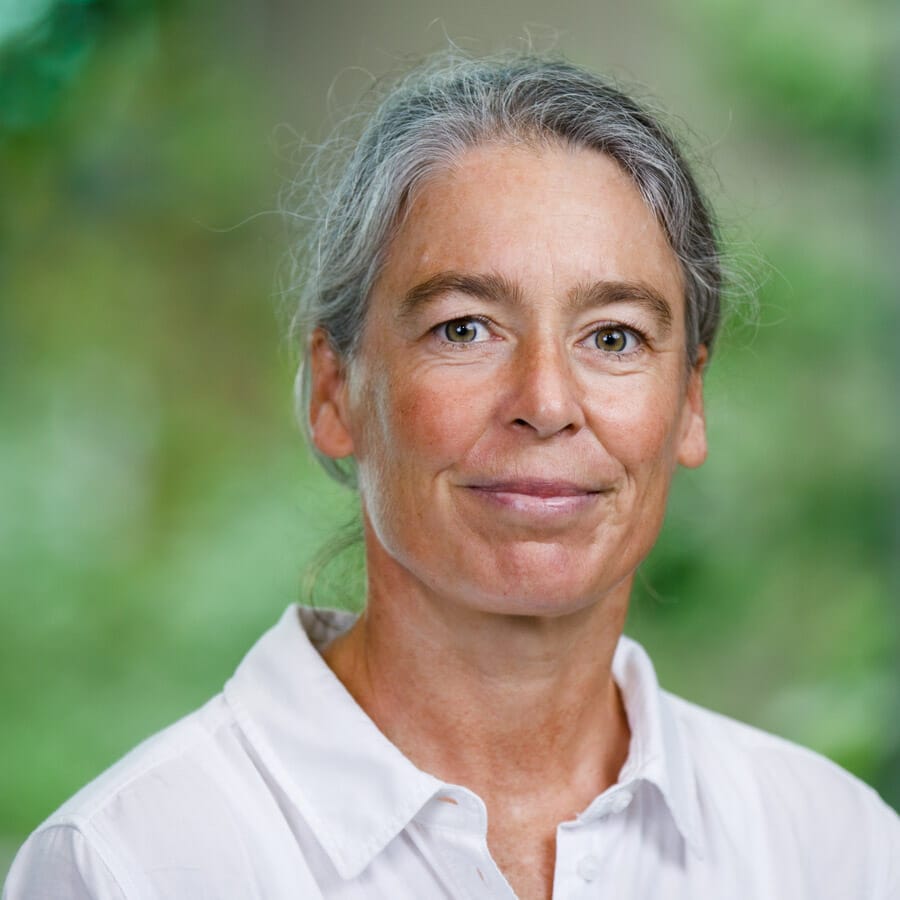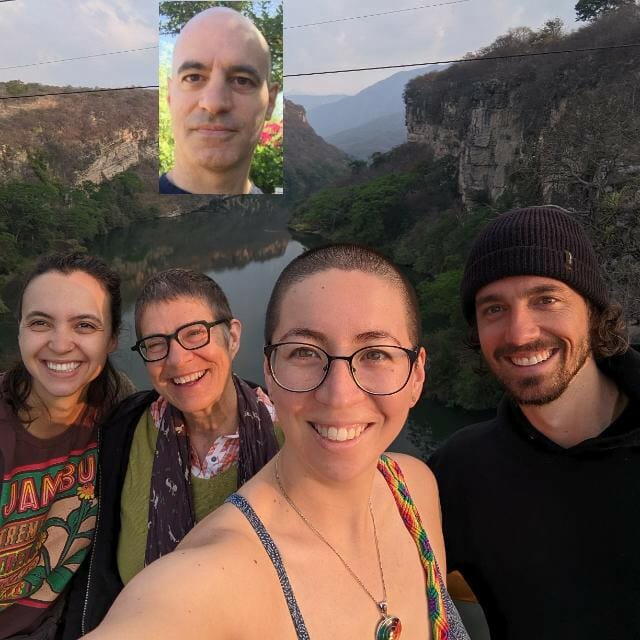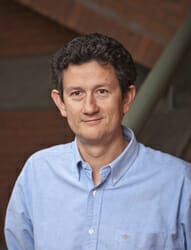
School of Sustainability Research Seminars
The School of Sustainability hosts a regular seminar series that brings together faculty and students engaged in sustainability research to present and discuss their work.
Please join us for some or all of these great seminars this year, and feel free to review our previous events.
For those interested in giving a presentation, please email Bryan Leonard at [email protected] and Jennifer Vanos at [email protected].
Sign up for SOS seminar notifications
Join the School of Sustainability Research Seminar email list.
Spring 2024

Elke Kellner
Arizona State University
January 24, 2024
12:00pm Arizona time
WCPH 107
Despite near-global consensus on Sustainable Development Goals (SDGs), unresolved and politically contentious trade-offs between SDGs have undermined the implementation. Conflictual trade-off situations between SDGs are known as key barriers to reaching the goals and call for new innovative governance approaches. In this talk, Elke Kellner, along with her students, shared insights about the governance of conflictual trade-off situations in their case studies in the US, e.g., Grand Canyon (AZ), Chaco Culture National Historical Park (NM), Bears Ears National Monument (UT), and Resolution Copper Mine (AZ). All case studies involve Indigenous communities, requiring specific governance approaches.
Jose Lobo
Arizona State University
February 7th, 2024
12:00pm Arizona time
WCPH 107
The question is no longer if we can halt global warming at 1.5°C but how large the overshoot will be and for how long we will be in an overshoot phase. Adapting to the consequences of climate change is a now a pressing task in many parts of the world and the urgency of adaptation will grow as the frequency and severity of the consequences of climate change increase. As concentrators of population and human activities, cities worldwide are at the forefront of experiencing the effects of climate change—marginalized, poor, politically underrepresented and historically excluded urban populations are at great risk. Achieving sustainable urban development necessitates urban adaptation to climate change. In the Global South, where the process of urbanization is still unfolding and where urbanization needs to continue its historic role as a driver of socioeconomic development, cities present both a major challenge as well as an opportunity for focusing on climate and development synergies. Realizing the possible synergies will require knowledge and training gaps to be addressed. In this talk (intended to spark vigorous dialogue) I will highlight some of the gaps and their implications for the School of Sustainability in particular and Sustainability academia more generally. I will also describe an incipient effort to bring the insights about and experiences in building resilient communities accumulated by informal urban communities (“slums”) into the emerging global discussion on tackling climate and SDG action together.
Karen Fisher-Vanden
Penn State University
February 28th, 2024
12:00pm Arizona time
WCPH 107
Abstract
Exploring risk and response behaviors is a major scientific challenge for understanding integrated impacts of climate change, landscape evolution, and the resilience of complex systems. Understanding and modeling multiscale, multisystem response options and cross-system implications requires not only an understanding of multisector teleconnections in the coupled human and Earth system, but also how interconnected systems are exposed to hazards that create vulnerabilities and risks for society and how societies respond to these risks. In this presentation, I will highlight work being done as part of the Program on Coupled Human and Earth Systems (PCHES), a transdisciplinary research consortium of nine leading universities funded under the U.S. Department of Energy’s MultiSector Dynamics (MSD) program. The primary objective of the PCHES project is to answer two critical, and interrelated research questions: (1) How can we characterize and quantify the propagation of hazards (flood, water scarcity, wildfire) through the coupled human and earth system, affecting the exposure and vulnerability of populations and human built systems to these hazards? (2) How do these populations and physical systems respond to these risks and how do those responses feed back to the fully coupled, co-evolutionary human and natural Earth system?
Bio
Karen Fisher-Vanden is Distinguished Professor of Environmental and Resource Economics and Public Policy, and Director of the Institute for Sustainable Agricultural, Food, and Environmental Science (SAFES) at Pennsylvania State University. Professor Fisher-Vanden holds a B.S in Mathematics/Computer Science and a B.A. in Economics both from UC Davis, a M.S. in Management Science from the Anderson Graduate School of Management at UCLA, and a Ph.D. in Public Policy from Harvard University. She was a Lead Author of the IPCC’s Fifth Assessment Report Working Group III, and a previous member of the U.S. Climate Change Science Program (CCSP) Product Development Advisory Committee and lead author of a congressionally-mandated CCSP report on global change scenarios. She is President of the Association of Environmental and Resource Economists (AERE) where she previously served on the Board of Directors, and was a member of the EPA Science Advisory Board on Economy-wide modeling. Her areas of research include economic and integrated assessment modeling for climate change impacts and policy analysis. She has led a number of large externally-funded research programs and is currently co-Director and Principal Investigator of the Program on Coupled Human and Earth Systems (PCHES), a large Cooperative Research Agreement with the US Department of Energy.
Edward Chu
Special Advisor to the President | Environment and Climate Solutions
Affiliate Global Futures Scholar | Julie Ann Wrigley Global Futures Laboratory
Arizona State University
March 13th, 2024
12:00pm Arizona time
WCPH 107
Watch the recording on YouTube
Edward Chu, Special Advisor to the President on Environment and Climate Solutions, will share his experience in environmental policy decision making from his work at the U.S. Environmental Protection Agency. Mr. Chu will discuss the critical role of environmental policy in addressing environmental outcomes; the complexity of public policy decision making; and identify knowledge gaps, opportunities, and challenges faced by decision makers.
April 3rd, 2024
12:00pm Arizona time
WCPH 107
Watch the recording on YouTube
Decolonizing the Relational Turn in Sustainability: Walking to Unlearn and Relearn
Speaker: Brian Grant
This project explores relational sustainability research through a personal experience walking a popular wilderness trail here in Arizona that has been exposed as part of a forced removal event in 1875, known as the Yavapai-Apache Exodus. I engaged with a relational walking methodology called ‘walking-with’, along with arts-based methods, to create space for relating with land as an agentic being and teacher. Though I set out with academic intentions, the land guided me through a series of disruptions that invited me to see myself more clearly in relationship to land, colonization and research.
Icy intersections: Worldview-based decision making in Arctic frozen-commons governance under climate change
Speaker: Leah Shaffer
“Frozen Commons” are landscapes of ice, snow, and permafrost that are collectively managed by Indigenous Peoples, local communities, governments, and non-local stakeholders. Multi-level governance is integral to the future of frozen commons stewardship, as effective decisions require input from many jurisdictional levels. I investigate the role of worldviews on multi-level decision-making, with a focus on how worldviews lead to conflict and consensus among rights holders and stakeholders in frozen-commons governance.
Fall 2023

Data Humanization Collective
September 6th, 2023
12:00pm Arizona timeWCPH 107
“Data Humanization” is a performance-based practice that plays against and with the increasing importance of “data” or “information” in modern lives. It was developed over the past decade by a member of our collective and recently evolved through the Indigenous Sustainability Solutions course in fall 2022 as a group practice. In countries with easy access to money and comfort, we daily encounter profound tragedy and loss in reports: numbers of victims of diverse types of violence; percentages of native languages lost; hectares of burned forest, etc. The effect of this can be apathy and a feeling of overwhelming hopelessness also known as compassion fatigue. Data Humanization Collective has found that forging a physical relationship with a representative number can inspire new ways of knowing, renew our sense of agency, and connect us to one another and the world. When performed with a spirit of humility, it is also a powerful tool of atonement and reconciliation. They brought this methodological and epistemological offering to the Autonomies in Practice Gathering in San Cristóbal de las Casas in Chiapas, México in March 2023 and hope to share reflections of this praxis with you.

Oscar Melo
Pontificia Universidad Católica de Chile
October 4th, 2023
12:00pm Arizona time
WCPH 107
The WEF nexus approach is an integrated framework that can be used for analyzing development options in the context of climate change. Integrated nexus modelling toolkits for evaluating adaptation actions will be presented using examples from South America that emphasize different elements of the nexus. These examples will also discuss how adding the environmental and socioeconomic dimensions to this framework can help build more robust adaptation strategies.
Spring 2023
Center for Global Discovery and Conservation Science
Arizona State University
February 22nd, 2023
12:00pm Arizona time
WCPH 107


